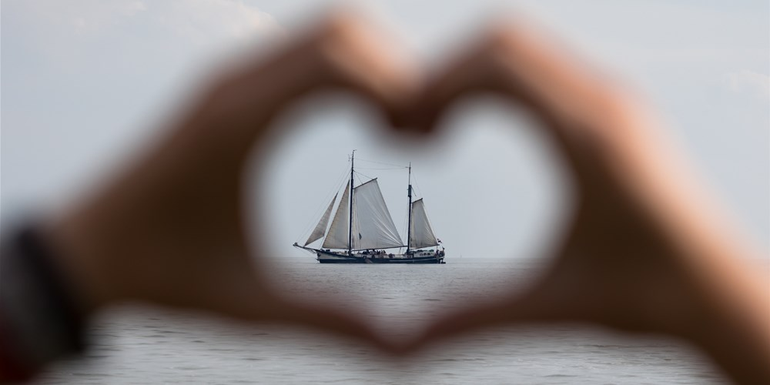NAUPAR sponsors free teaching material on microplastics for schools

NAUPAR and Plastic Soup Foundation have joined forces in the fight against plastic pollution. 'Sailing on a large, authentic sailing ship is a fantastic experience and also a sustainable outing in beautiful surroundings. It is special to experience the Netherlands from the water. Besides historic port cities, there are beautiful natural areas and lakes,' says Arjan van der Meer, general manager of NAUPAR. 'But nature is under pressure and so we also want to work on raising awareness. Microplastics are a big problem for people and the environment. That is why we sought a cooperation partner who can help us with ready-made teaching materials for schools. Thanks to several sponsors, Plastic Soup Foundation has developed extensive free teaching materials that we can use.'
Free teaching material during sailing trip
Schools that charter one or more ships via NAUPAR can use this teaching material free of charge. 'By sponsoring free teaching material on microplastics in the water, we want to add value for schools so that they still have access to this valuable teaching material at no extra cost. Because the beauty of the teaching material is that it makes a fantastic working week on a ship even more educational. And for the teachers it takes little extra time, because the whole package is ready-made,' Arjan explains.
Biology, geography, care, it's all in the 'plastic lessons'
Several lessons have been developed by Plastic Soup Foundation, together with GLOBE Netherlands. These include an Introduction lesson on plastics soup, a challenge to go on a plastic diet, and an in-depth lesson on microplastics in water. The lessons touch on biology, geography, care and, in the in-depth lesson, Research & Design in an engaging way. In this lesson, pupils can take water samples during a sailing trip and examine them for microplastics.
Tackling at source
'In schools that have already done this last lesson, pupils came to the shocking discovery that microplastics are really everywhere in the water,' says Wendela van Asbeck, Manager Education of Plastic Soup Foundation. In Dutch lakes, but also in ditches and in the Wadden Sea. 'We can no longer remove the plastic already in the water, but we can tackle the problem at the source. Above all, that means stopping the unnecessary use of disposable plastic.'
Global, annual plastic production: over 425 million tonnes
More than 425 million tonnes of plastic are currently produced worldwide. That includes packaging materials, but plastic is also in car tyres, clothing, cosmetics and personal care products. About 3% of plastic ends up in the ocean. That may not sound like much, but concretely, it means that more than a rubbish truck full of plastic ends up in the oceans every minute.
So it would make a huge difference if less plastic is used as packaging material. But using the car less would also help, because wearing tyres releases microplastics into the air, as does wearing clothes containing polyester, polyamide, acrylic and elastane. Wearing and washing these releases fibres, which end up in the air, or in the water, via washing machine rinse water. 'There are currently few good alternatives to clothes with plastic, so the most important thing now is to stop buying new clothes all the time. We have to get rid of the idea that we need a new wardrobe every season,' says Wendela.
The good news is that there is slowly increasing awareness about the problem of microplastics. Legislation and other measures to reduce the production and use of plastic are also being worked on globally at the political level. But there is still a long way to go. And raising awareness among the younger generation can help turn the tide, and lessons on this will help.
Ready to go on a Plastic Soup Expedition with NAUPAR?
Contact one of our staff, they would be happy to tell you more about the Plastic Soup Expediton for schools in the Netherlands.